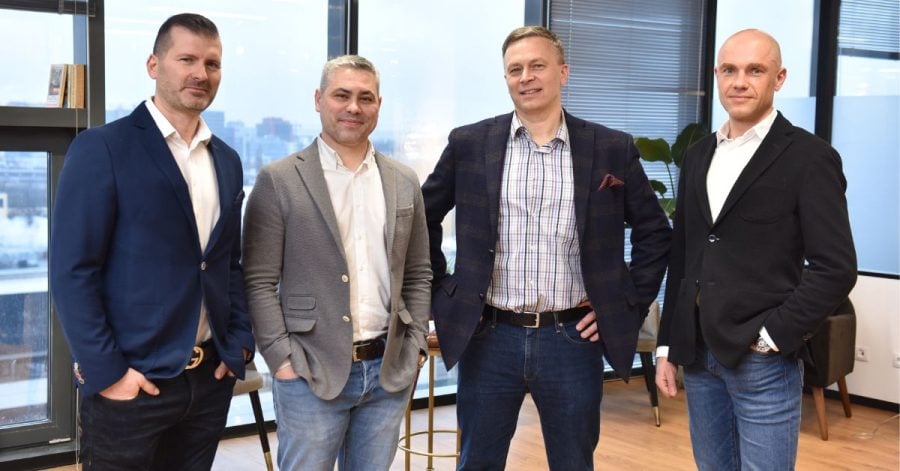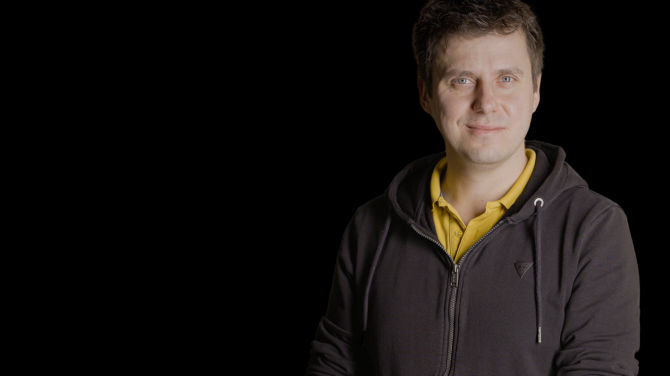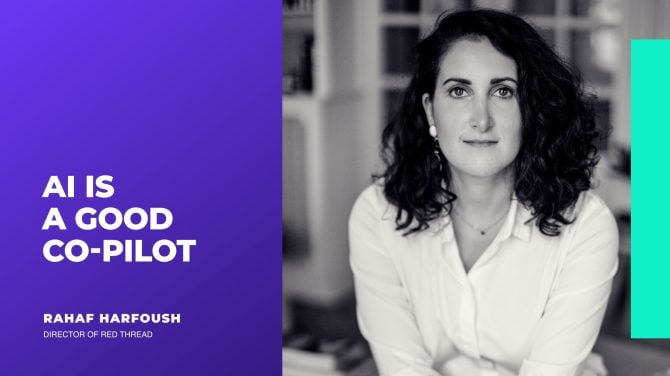Only have 1 minute? Here are 3 takeaways from the piece:
• The newly established Polish VC fund Radix Ventures has a long-term vision for supporting CEE ecosystems in developing deep tech
• Energy, logistics, and manufacturing are among the key industries in their investment focus
• Aside from Poland the fund will be heavily focusing on Romania, Hungary, and Ukraine
With a goal to raise a minimum of €50 million and achieve its first close by the end of the year, new Polish venture capital firm Radix Ventures is looking to make a substantial impact in the region, especially when it comes to the deep tech startups.
In an interview with The Recursive, Pawel Bochniarz, one of the founders of Radix Ventures, which is also backed by the European Investment Fund with €25 million, shares what are the fund’s strategies and for further developing the CEE deep tech startup ecosystem.
A child of the 1970s, Bochniarz still has the memories of what it was to live in communist times, while also witnessing the transformation that later swept Poland and the region, and brought back the market economy. This is how he became an entrepreneur in the first place, founding several companies and then ending up working for consulting giant PwC.
And it was there at PwC where he started looking more closely into innovation and R&D, while also realizing the potential that deep tech can have for transforming the CEE countries.
After several years in venture capital, Bochniarz now spearheads his new fund’s efforts and long-term vision for supporting innovation and entrepreneurship across the CEE.
The Recursive: What is your background and how did you enter the investment world?
Pawel Bochniarz: It was very natural for me to become an entrepreneur, because I could immediately see many opportunities. Eventually, after setting up a number of consulting businesses and selling them to international investors and exiting, I ended up at PwC. And this is where I started to get involved in innovation and R&D.
In 2013 we won this big tender organized by the Polish government to do a due diligence of technology grants. Тhe Polish government and the Ministry of Science wanted to know what is the outcome of all this money that was put into science and the research world – was it producing any meaningful innovations or was it just scientists doing some crazy stuff in their labs.
Then, we came back to the government with a report saying that out of 330 projects that we investigated, some 10 percent, or around 30 technologies might have a chance. After that we did the market research on which of these companies are innovative and for which ones we can identify some potential clients. And we actually went out to the market, not just in Poland, but globally, and we successfully had 11 of these technologies commercialized.
And it was really fascinating because it was an extremely diverse portfolio of technologies. We had some composite technologies for the aerospace sector, we had some software technologies for aviation, we had some chemicals, we had some nuclear technologies that can be deployed in the security sector.
So it was really varied and it was a fascinating job that got me really exposed to some of the most innovative researchers in the country. It was then when I thought that this is what we actually need in Central and Eastern Europe, and this is what we need in Poland if we want to become advanced countries. We can’t just assemble cars or computers for the more advanced countries, we have to produce innovation of our own.
The focus of the fund is going to be on deep tech startups in CEE. What are the challenges that you hope to help deep tech CEE founders with?
Coming from the consulting world, I’ve had the privilege and opportunity to work and consult many companies in the different corners of different sectors of industry – from energy, to manufacturing, and food, etc.. The technological change that has happened in manufacturing and energy is just tremendous.
The pace of these changes is just ever increasing and the pressures on the sectors is huge and it cannot be answered properly without deep tech. There is an understanding that we need to move away from fossil fuels, but without more breakthroughs in areas such as storing energy for example we’re not going to be able to do it. Additionally, the volatility connected with renewable resources being deployed on a wider and wider scale is going to disrupt energy grids to a level that it can become uncontrollable without the right technology that can help forecast such imbalances and counteract them.
If you look at manufacturing and if we want to stop this huge migration of manufacturing jobs from Europe, we’ve got to find ways for the sector to become more productive and this can only be done by introduction of advanced materials, process technologies, factory automation etc, so that we produce less waste, consume less energy and water. And frequently these challenges to be properly addressed require a combination of knowledge from different disciplines of science and technology.
Deep tech solutions are often characterized by this ability to combine and deploy knowledge that stems from different areas of science. I think that this is something that Europe can be very good at and this could be a competitive advantage for us. These are the sorts of technologies that we’re looking for – solutions that can radically improve competitiveness of European companies and help to keep jobs on our continent.
What is it like to fundraise a deep tech fund in the current macroeconomic climate?
Honestly, if I were to start right now, I would maybe think even longer about it. But two or three years ago, when we started thinking about the fund, the environment was also a bit uncertain, because the COVID pandemic was there.
However there was no sign of a full-blown war, and there was no sign of this huge energy crisis, inflation and high interest environment that we are experiencing now. So back then, when we made the initial plan for the fund, the venture climate was just much more upbeat. Having said that, we are extremely proud to be able to lock in EIF as our cornerstone investor and we see that the investment climate seems to be picking up somewhat.
What specific criteria or characteristics do you look for in potential deep tech startups that you consider for investment?
It’s quite natural to think that for deep tech startups, technology is the most important thing. And here we do need to apply more scrutiny to technology, not just from the perspective of what it does, but also how it is protected, the IP side of technology, and so on. Because if technology can be easily duplicated or if it can be challenged, you’re infringing someone’s intellectual property, this may easily kill a business.
We’ve even had huge tech companies in the past facing disputes where they were challenged by much smaller players, and were forced to close certain business lines, or pay huge fines. The IP is an area that we’re paying a lot of attention to. But having said that, the team is always of the utmost importance.
And the challenge with deep tech teams is that frequently, in the core team, the balance is sort of shifting to people with scientific backgrounds and deep tech knowledge, but not necessarily too much business experience. So, if we talk about challenges, then this is one of them – we are looking for deep tech teams that have strong technical experience and where research progress can produce world class science, but they would need to have the business acumen as well – and this is a fairly tricky combination.
Are there any sectors or industries within deep tech, such as AI maybe, that Radix Ventures is particularly interested in?
I have this contrarian nature so whenever I see any trends I have a strong suspicion that it could be a fad. So I’m always doubtful and skeptical. We didn’t do any web3 investments even when it became really hot. Now, I think with AI, there is a risk of overuse of this term, and sometimes solutions that involve data mining, data drilling or different data analysis approaches are labeled AI.
Having said that, I graduated from the Department of Economics, with mathematics as my major, so I do have some appreciation of areas of AI that are certainly worth the attention. Obviously, now we have this huge focus on large language models (LLMs) and there will be many areas of business where LLMs will play a part in and bring really breakthrough innovations.
For example, such as modernizing legal services, where you have to analyze documents, draw conclusions, and there can be a lot of automation done in that area. Maybe also in accounting and so on. If I look at deep tech I’m thinking of the ways that that AI can help develop new chemical compounds, so it could be in the pharma industry, where you can also rapidly increase the pace of the scale of experimentation by just basically projecting, doing a small number of experiments, and then projecting these virtual experiments. And this is already happening, there’s a lot of innovation now.
I think AI will have its influence on deep tech as well. But, we’re looking broadly, we’re not just looking at software, there are new ideas coming out of the engineering fields, we are obviously looking at the huge influence of quantum science. I think practical applications of quantum computers are still relatively far away from us, but quantum communications or post-quantum cyber security are areas which are quite exciting from the perspective of industry sectors.
With Radix we will be looking at startups that have interesting technology solutions for those sectors, which are experiencing the most pressure to reform and change. And it is certainly transportation, energy, not just from the perspective of power generation, but also systems for energy transmission and energy storage – and these are the areas where innovation is just necessary.
What role will venture partners from Romania, Hungary, and Ukraine have in the fund’s operations?
The venture partners are people for whom the role with Radix is a sort of secondary role. Alex Mihailciuc in Romania is a vice president at UiPath and this is his main job, but he is very active in the Romanian innovation ecosystem. Together with Daniel Dumitrescu, they are collaborating with the InnovX accelerator there.
If you look at Hungary, we have a partner, Marton Szoke, who is an active private investor, so he will be doing deep tech investments with us, but he’s also free to invest in other areas on his own. So from all of these guys we expect contribution to pipeline, early identification of interesting teams, and so on.
Also, once we decide to invest, we like to have boots on the ground because you need to stay close to the teams you’re investing in. So most likely, these guys will also be on boards of directors, or they will be advisors to the portfolio companies in their respective geographies.
And we’re not excluding any particular countries in our region, since I have a strong belief that innovation can come from anywhere. There are clever people everywhere, and I very much look forward to being present in key ecosystems such as Bulgaria or Serbia as well.
What are the long-term goals and aspirations for Radix Ventures in the next five to ten years?
Our long term vision is to become the deep tech VC of choice for entrepreneurs. Our slogan basically says that we are empowering radical innovators and radical innovations. We also have the background in also supporting technology transfer primarily in Poland, and we want to use that knowledge and share it with our partners across the region.
We’re going to visit countries in the region, also try to meet with really interesting research teams, universities, technology transfer offices, and help them incubate and curate teams that eventually can become good investment cases. This is also something that we want to do regularly, and it’s something that will take some time.
I don’t want to speculate too much about what will be happening in the future but perhaps we will have a separate fund for Ukraine sometime from now, when it becomes again possible to freely invest in this country. We may have a fund more focused on the southern part of the region. We will definitely want to be growing our team as well and not just in Poland, but also in other corners of CEE as well.








